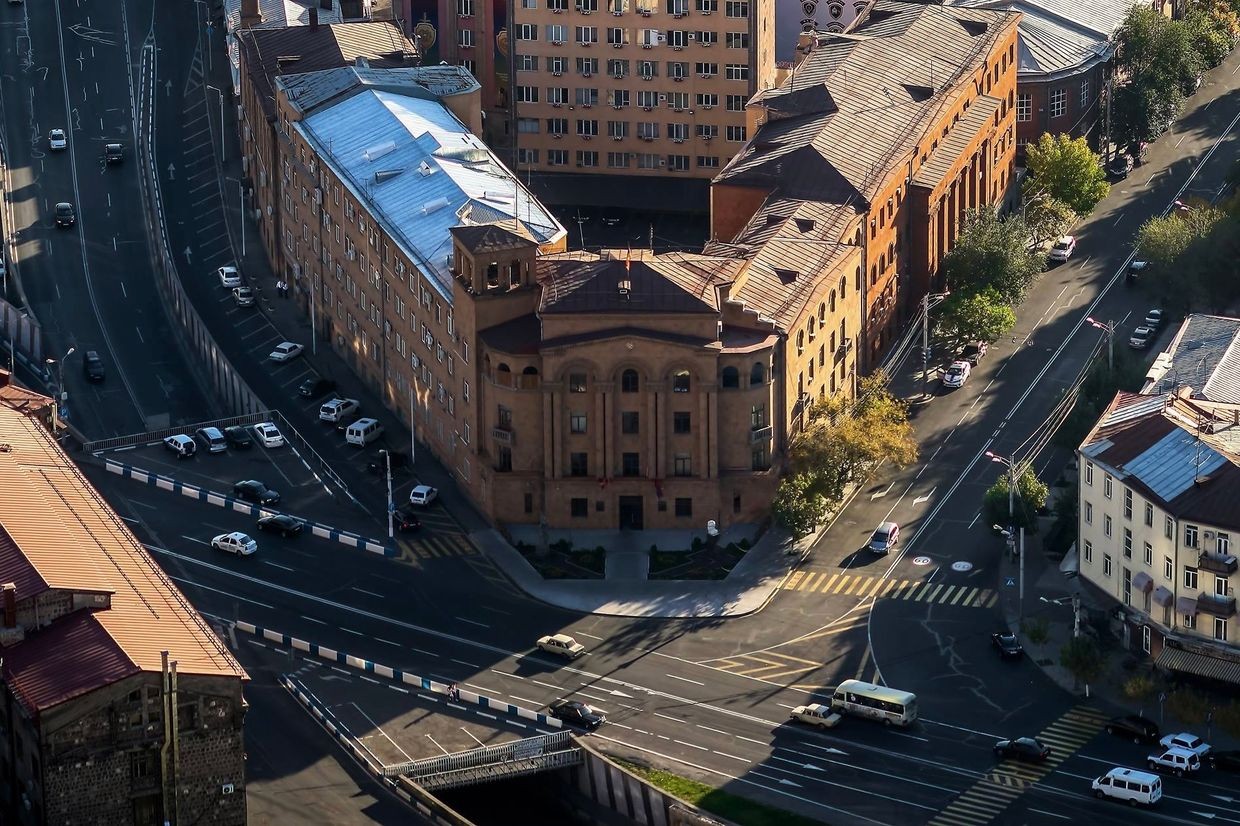
Members of the Russian police have ‘broken into’ a police station in Yerevan to ‘persuade’ a Russian national to surrender. The incident was related to a criminal investigation back in Russia.
On Wednesday, the Helsinki Citizens’ Assembly — Vanadzor reported that the incident took place on 13 February, as Roman Shklover, a Russian national they legally represent, was summoned to a police station in Yerevan.
According to the organisation, Shklover was summoned by the Protection Division of Yerevan Metro on 13 February. He went there with the assembly’s lawyer, Samson Galstyan, and he was informed that a criminal case had been launched against him in Russia. In the meantime, the organisation reported that Russian law enforcement representatives, whom they believe to have been members of the Russian Federal Security Service (FSB), ‘broke into’ the police department to speak with Shklover.
‘In the presence of the [Armenian] police, they tried to persuade R. Shklover to voluntarily go with them and surrender to the Russian Federation, promising that “everything will be fine with him” ’, read the assembly’s statement about the incident.
They also noted that their lawyer ‘did not allow such an illegal act’, and Shklover himself ‘refused to cooperate with the FSB employees’.
‘It turns out that Russian security officers have free access to and from the Police Departments of the Republic of Armenia, are able to meet with Russian citizens in the departments without hindrance, and “urge” them to voluntarily surrender to Russia’, the civil rights group concluded.
They condemned the actions of the Russian side and demanded that Armenia ‘take immediate measures not only to stop such illegal actions but also to initiate criminal prosecution against those who committed such illegal actions’.
On Thursday, the Ministry of Internal Affairs dismissed the group’s report, stating that Shklover was summoned by the Armenian police because he was wanted in Russia. They confirmed that Russian law enforcement representatives were at the police department in Yerevan pursuant to Commonwealth of Independent States (CIS) regulations.
Russians at risk in Armenia
This recent incident was one of several similar cases that took place in Armenia with the participation of Russian law enforcement or military.
In December 2023, Russia reportedly detained Russian military deserter Dmitry Setrakov in the Armenian city of Gyumri, later transferring him to Rostov-on-Don in Russia, despite the Armenian authorities claiming to have no knowledge of his detention or departure from the country.

Two months later, when asked about Setrakov’s case, Prime Minister Nikol Pashinyan told France 24 that Setrakov’s abduction ‘greatly worried’ Yerevan.
‘[We] are also investigating that case, and if it turns out that everything is as you say, it will of course also lead to certain consequences, because, of course, we cannot tolerate illegal actions on the territory of our country’, Pashinyan said.
Several months later, in April 2024, another Russian deserter, Anatoly Shchetinin, according to the assembly, was kidnapped by Russian military police based in Gyumri.
However, shortly after Russian state media agency Sputnik published a video with Shchetinin in the territory of the base, in which he said: ‘No one detained me, no one held me by force. Everything was done of my own free will’.
The practice of enhanced interrogation techniques by Russian law enforcement to extract forced confessions, including torture and threats of violence, have been widely documented.
In March 2024, the assembly also received alerts from Russian citizens who ‘had escaped political persecution and sought refuge in Armenia’. They cited the Russian nationals as saying that they noticed people in Russian military uniforms near their places of residence, ‘who overtly follow them and seek information as to who resides in apartments they oversee’.
At the time, the assembly claimed that the Russian police used ‘an unregistered passenger car with an Armenian license plate, which is intended exclusively for operational intelligence operations’.











